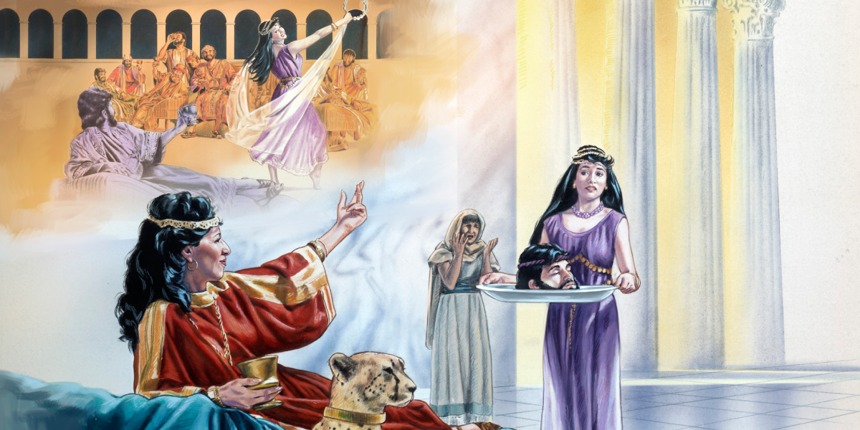home > questionable doctrine > birthdays
Birthday Celebrations
Jehovah’s Witnesses are not allowed to celebrate birthdays, based on what are claimed to be Scriptural reasons. This affects Witness children most, and later this is often remembered as one of the areas of greatest embarrassment and loss in childhood. This an important topic because of the trauma this Watchtower teaching causes Witness children.
I clearly remember the day I turned 8 years old. My primary school teacher called me to the front of the class and then asked all the children to sing happy birthday to me. I was mortified, thinking Jehovah hates birthdays, but too young to know what to do. I have never forgotten the Scripture my mother read to me that night after she found out what had happened.
Revelation 3:15-16 "'I know your deeds, that you are neither cold nor hot. I wish you were cold or else hot. So because you are lukewarm and neither hot nor cold, I am going to vomit you out of my mouth.'"
My mother told me that if I was not strong enough to stand up for Jehovah, Jehovah would view me as lukewarm, and vomit me out of his mouth at Armageddon.
Do Jehovah's Witness parents still instil their children with such terror? Watchtower's video series for children, Become Jehovah's Friend, shows birthdays continue to be traumatic. In Lesson 40: Jehovah Forgives (As of 13 Feb 2022) a distraught young Caleb pleads his father: "What if Jehovah doesn't want to be my friend anymore?" His anguish was because he had taken a cupcake at school on his birthday, and was too afraid to admit to other children at school that as one of Jehovah's Witnesses he should not have done so.


Image Source: Watchtower video Become Jehovah's Friend - Lesson 40: Jehovah Forgives
The reasoning against birthdays gives insight into the manner in which the Watchtower formulates doctrine. Claiming birthday celebrations are sinful is a classic example of Watchtower eisegesis; that is, misinterpreting a text to introduce one's own agenda and bias.
Nowhere in the Bible is it stated that observing birthdays is wrong, so the Watchtower uses four predominant lines of reasoning to prevent Witnesses celebrating birthdays:
- People died at the two birthdays mentioned in the Bible
- Day of death better than birth – undue honour
- Not celebrated by Jews or Christians
- Pagan
When presented together, these may appear to provide solid defence against birthdays. However, when deconstructed each point shows poor logic, and the Watchtower condemnation of birthdays contradicts Bible principles.
Two Bad Birthdays
Ask a Witness why they cannot celebrate a birthday and the first reason given will most likely go something like this:
Only two birthday parties are mentioned in the Bible, and in both someone died. The Bible must have included these as examples to warn us to avoid birthday parties.
This is based on comments such as the following:
“The Bible reports only two birthday celebrations, both of persons who were not servants of the true God. The first was that of Pharaoh of Egypt. It was marked by the hanging of Pharaoh’s baker, who had been in prison with Joseph. … The second, some 1,800 years later, was the birthday of Herod Antipas [during which the daughter of Herodias asked for] ‘The head of John the baptizer.’ … Is it just coincidental that they are mentioned and that both were for persons not having God’s approval? Or could it be that Jehovah deliberately had these details recorded in his Word, which he says is “beneficial for teaching, for reproving, for setting things straight”?” Watchtower 1980 Jul 15 pp.30-31
“Jehovah’s Witnesses take note that God’s Word reports unfavorably about birthday celebrations and so shun these.” Reasoning From the Scriptures pp.68-69

Image Source: Watchtower publication Jesus - The Way, The Truth, The Life Chapter 51
It is correct that two birthday parties are specifically mentioned in the Bible, neither was for worshippers of Jehovah, and someone was killed at both. However, neither were standard birthday parties, but that of kings. Murder has never been a common accomplice of the traditional birthday party. The question to consider is whether these extreme examples are included as a warning against such celebrations.
If the moral of these stories was against birthday celebrations, than the stories should end with the warning that birthdays are not for followers of God. Neither story makes such a statement, as this was not to purpose of these accounts.
Genesis 40:20-23 contains the account of Pharaoh’s birthday celebration, during which a baker was hanged. However, it was not the birthday, but the death of the baker that is key to the story, as it was in fulfillment of a prediction by Joseph, showing the prophetic ability of this follower of God. As a result, Joseph was called to interpret a dream of Pharaoh, and promoted to second in charge of Egypt. The story was included in the Bible to bring glory to the prophetic ability of God, with the birthday as incidental.
Matthew 14:6-10 and Mark 6:21 have the account of the second birthday celebration, held for Herod, during which Salome requested the beheading of John the Baptist. The inclusion in the Bible was not related to the birthday, but rather the importance of the death of John the Baptist to the formation of Early Christianity.
If we are to assume the inclusion of something bad in the Bible is to warn against such things, despite no statement to that affect, then endless more rules can be conjured. For example:
- Dogs are mentioned in the Bible 40 times, and in every mention they are described disparagingly. They are said to be lowly and unclean, used as an allegory for sodomites (Deut 23:17,18), and said to be no part of the New System (Rev 22:15). Yet, the Watchtower does not conclude dogs are not for Christians.
- The wearing of eye paint is mentioned twice, once in reference to wicked queen Jezebel (2 Kings 9:30) and secondly to apostate Israel (Jer 4:30), yet the Watchtower does not forbid eye makeup.
Why does the Watchtower not hold birthdays to the same standard?
2 Samuel contains the only instance where a siesta is mentioned in the Bible, and results in a beheading.
2 Samuel 4:5-7 “And the sons of Rim′mon the Be‧er′oth‧ite, Re′chab and Ba′a‧nah, proceeded to go and come to the house of Ish‐bo′sheth about when the day had heated up, as he was taking his noonday siesta. And here they came into the middle of the house as men fetching wheat, and then struck him in the abdomen; and Re′chab and Ba′a‧nah his brother themselves escaped detection. When they went into the house, he was lying upon his couch in his inner bedroom, and then they struck him so that they put him to death, after which they removed his head and took his head and walked on the road to the Ar′a‧bah all night long.”
“Is it just coincidental” that the Bible has an account showing the danger of a noonday siesta, or would most people feel that to be reading too much into the passage?
Day of death better than birth – undue honour
Solomon wrote at Ecclesiastes 7:1 :
“A name is better than good oil, and the day of death than the day of one’s being born.”
This is in recognition that at death a person leaves their legacy of having been righteous or not.
In macabre fashion, the Watchtower misapplies Ecclesiastes 7:1 to persuade against birthdays.
“Although childbirth is a joyful occasion, the Bible puts it in perspective with this interesting comment: “A name is better than good oil, and the day of death than the day of one’s being born.” (Eccl. 7:1) … So the imperfect life we have at birth is not really life at all from God’s point of view. That is why a good “name” with God is so important! … Would it not be better to seek and rejoice in a good relationship with God than to celebrate a birth date?” Awake 1981 Dec 22 pp. 14-15
The Watchtower here misrepresents Solomon’s intent, as is readily apparent when continuing to read this Bible passage. Solomon continues by saying; vexation is better than laughter, a funeral better than a banquet, and mourning better than rejoicing. Solomon does not forbid being happy, or attending a banquet. Nor does he forbid celebrating ones birth anymore than he forbids accumulating good oil. The intention of these passages is not an opinion about birthday celebrations, but rather the importance of working on gaining a character of wisdom.
The Watchtower continues the reasoning, referring to Ecclesiastes 7 to suggest that birthdays attach excessive honour or importance to an individual.
“Additionally, birthday celebrations tend to give excessive importance to an individual, no doubt one reason why early Christians shunned them. (Ecclesiastes 7:1) So you will find that Jehovah’s Witnesses do not share in birthday festivities (the parties, singing, gift giving, and so forth).” School and Jehovah's Witnesses p.18
“… birthdays are unlike other holidays, for they are times “when all the presents and good wishes are for oneself. The birthday cake, splendid with colored icing and shining candles is a personal tribute. Other holidays lift the heart, but birthdays warm the ego.” Is it a good idea for Christians to engage in celebrations that “warm the ego”? Speaking to the proud Pharisees, Jesus warned that “whoever exalts himself will be humbled, and whoever humbles himself will be exalted.”” Awake! 1981 Dec 22 p.14
There is nothing wrong with giving an individual special attention. If this truly is a reason to avoid a birthday party or celebrations, then it should also apply to graduation parties, retirement parties, wedding anniversaries, or celebrating a good school report. A wedding reception, such as the one attended by Jesus, elevates a newly married couple with as much importance as a birthday party. A baby shower, which is a birthday celebration, puts a mother and child in the spotlight. A Kingdom Hall announcement that an individual is pioneering gives importance to that individual prior to achieving their goal, but this is not considered wrong. It is common for a Witness to receive gifts after their baptism, or even be provided a celebratory meal, yet it is unknown whether they will continue in good standing to the day of their death.
To single out birthdays alone as giving undue importance is a contradictory Watchtower stance.
Bible Writers did not Celebrate Birthdays.
It was not a Jewish practice to observe annually the date of one’s birth, and hence the Bible does not stipulate the celebration of birthdays. The Watchtower draws upon this as part of it formulation to condemn birthdays. It does so in several guises, though each of the following lines of reasoning is in actuality the same point:
- The Bible does not say to celebrate birthdays
- Jews did not celebrate Birthdays
- Early Christians did not celebrate birthdays
- Jesus birthday was not celebrated
Consider the following quotes:
“However, there is no indication in the Scriptures that faithful worshipers of Jehovah ever indulged in the pagan practice of annually celebrating birthdays.” Insight on the Scriptures, Volume 1 p.319
“How did early Christians and Jews of Bible times view birthday celebrations? “The notion of a birthday festival was far from the ideas of the Christians of this period in general.” … “The later Hebrews looked on the celebration of birthdays as a part of idolatrous worship, a view which would be abundantly confirmed by what they saw of the common observances associated with these days.”” Reasoning From the Scriptures p.69
“Since the Scriptures do not reveal the birth date of the perfect man Jesus Christ, why should we give special attention to the birthdays of imperfect humans?” Knowledge That Leads to Everlasting Life p.126
Whilst presented as several angles of support, it effectively is a single line of reasoning. Jews did not make a practice of celebrating birthdays, which is why the Bible does not promote them. Since Jesus was Jewish, as were most early Christians, this applied to them too, though it is inconclusive that early Christians avoided birthdays as a universal stance.
The Jewish non-practice of birthdays(1) does not make birthdays wrong, as the Bible neither specifically promotes nor condemns them.
We do not need the Bible to sanction birthdays for them to be acceptable, anymore than a range of matters not covered in the Bible. The Bible does not state that wedding anniversaries are acceptable, but that does not make them wrong. It does not state to build kingdom halls; in fact early Christians met in homes, but that does not make kingdom halls unchristian. The Bible does not give authority to eat dessert and condemns gluttony, yet this does not imply dessert is wrong.
Pagan
The Watchtower makes the claim that birthdays are to be avoided due to being pagan.
“Even if Jesus’ disciples had known the exact date of his birth, they would not have celebrated it. Why? Because, as The World Book Encyclopedia says, the early Christians “considered the celebration of anyone’s birth to be a pagan custom.” Bible Teach p.157
“Down to the fourth century Christianity rejected the birthday celebration as a pagan custom.” Reasoning from the Scriptures p.69
“What about the birthday cake? It appears to be related to the Greek goddess Artemis, whose birthday was celebrated with moon-shaped honey cakes topped with candles.” Mankind’s Search for God p.70
“Such celebrations have their roots in pagan religions, and not Scriptural grounds. Some Bible commentators suggest that birthday celebrations may have had their origin in the “notion of the immortality of the soul”.” Watchtower 1951 Oct 1 p.607
Become Jehovah's Friend - Lesson 41: Should We Celebrate Birthdays? (As of 13 Feb 2022) adds that birthday wishes were to ward off evil spirits.
Forbiddance of beliefs and behaviour on the basis of paganism is one of the most illogical, misused, and contradictory lines of reasoning within the Watchtower.
Almost everything is pagan. Pagans have done virtually everything we do, including most of what a Jehovah’s Witness does day-to-day. This extends beyond necessary daily activities, such as bathing, eating, drinking, and working. The life a of Witness is filled with pagan practice, such as the wearing of neckties and perfume, celebrations with piñatas, flying of kites, and even use of the calendar, which is named after Roman Gods.
Weddings are laden in paganism, including the ceremony, cake, dress, burning of candles and the wedding ring. For some reason, Jehovah's Witnesses are allowed to participate in most wedding practices, but forbidden to throw confetti. The giving of wedding presents is accompanied by murder in the Bible. David was required to supply the foreskins of 200 slain Philistines as a dowry to King Saul (1 Sam 18:27). Pharaoh killed the inhabitants of Gezer and gave the city as a wedding gift to his daughter, Solomon's wife. (1 Kings 9:16 NIV). Should not consistency force the Watchtower to forbid these wedding traditions?
With arguments from paganism being an illogical stance, the Watchtower is plagued with a contradictory stance on pagan practices, at times admitting the meaning of a practice to pagans in the past is not of importance today.
For example, when discussing piñatas, Watchtower advises to contemplate how they are currently regarded:
“A main concern is, not what the practice meant hundreds of years ago, but how it is viewed today in your area. Understandably, opinions may vary from one place to another. Hence, it is wise to avoid turning such matters into big issues.” Awake! 2003 Sep 22 pp.23-24
The preponderance of paganism makes it irrelevant whether a “pagan” celebrated a birthday or why. The modern view of birthdays is what counts, and people do not associate birthdays with paganism, idolatry, or murder.
It is not unreasonable to think early Christians would have avoided birthday celebrations that were associated with lavish feasts dedicated to pagan gods, just as they would have avoided any other celebration, such as a wedding anniversary, dedicated to pagan gods. If pagan idolatry is not expected at a birthday, then it is not relevant to reason that attendance is pagan.
Bible’s Perspective
The Bible presents life as a gift to be celebrated and for which to be thankful. This is quite different that the Watchtower’s suggestion we be ashamed of the day of our birth.
The angels celebrated the birth of Jesus.
Luke 2:10-14 “But the angel said to them: “Have no fear, for, look! I am declaring to YOU good news of a great joy that all the people will have, because there was born to YOU today a Savior, who is Christ [the] Lord, in David’s city. And this is a sign for YOU: YOU will find an infant bound in cloth bands and lying in a manger.” And suddenly there came to be with the angel a multitude of the heavenly army, praising God and saying: “Glory in the heights above to God, and upon earth peace among men of goodwill.””
Later, the Magi presented the infant Jesus with gifts that were accepted by Joseph and Mary.
Job, an “upright and blameless man” celebrated with his children, in what was possibly their birthday celebration.
Job 1:4,5 “And his sons went and held a banquet at the house of each one on his own day; and they sent and invited their three sisters to eat and drink with them. And it would occur that when the banquet days had gone round the circuit, Job would send and sanctify them; …”
God does not object to commemoration, with a number of yearly festivals, memorials, and celebrations in the Jewish calendar.
Paul tells us, “… where the spirit of Jehovah is, there is freedom.” (2 Cor 3:17) He does not criticise Christians that celebrate a particular day as special, but does condemn those that are judgmental.
Romans 14:5,6, 10 “One man considers one day more sacred than another; another man considers every day alike. Each one should be fully convinced in his own mind. He who regards one day as special, does so to the Lord. … But why do you judge your brother? Or why do you also look down on your brother? For we shall all stand before the judgment seat of God…?”
Acts 20:35 says, “there is more happiness in giving than there is in receiving", and birthdays afford the opportunity to appreciate the joy of giving.
Historical development
Jehovah’s Witnesses celebrated birthdays until the 1950’s. For example, the following Watchtower quote is from 1940.
“Pardon me for intruding on your precious time, but I just can't help letting you know how much I appreciate the phonograph which came to me on the morning after the 8th, which was my 80th birthday. It was indeed a birthday gift from Jehovah, to be used in proclaiming his name. May grace and strength be given me to do with my might what my hands find to do." Watchtower 1940 Jan 1 p.16
The first Watchtower mention against birthdays was in 1951.
“Is it proper to have or attend celebrations of birthday anniversaries?-F. K., Nevada. Such celebrations have their roots in pagan religions, and not Scriptural grounds. Some Bible commentators suggest that birthday celebrations may have had their origin in the "notion of the immortality of the soul"." Watchtower 1951 Oct 1 p.607
Are we expected to believe Jehovah was tardy in removing an offensive practice from his people; or was the ruling against birthdays a man made rule introduced late in Watchtower history, as an attempt to segregate Witnesses from the general population?
Conclusion
If God wanted us to abstain from birthdays, it is reasonable to conclude he would have specified as much. With over 600 intricately detailed rules in the Mosaic Law, birthdays could have been mentioned if they were offensive to God, as they were a common practice in the surrounding nations at that time.
“Are Cats for Christians” (see jwfiles.com/wt_ex_jw_corner/cats.htm 20th Jul 2012) is a great satire on how the Watchtower approach to rule making can be used to forbid anything, such as cats being unchristian, if so desired. Cats:
- Were worshiped as Gods in Egypt
- Are never spoken of favourably in the Bible
- Are never listed as being owned by righteous men of old
- Are unclean animals, by the definition given to Noah
When the Bible does not forbid a practice, an Eisegesis approach to rule-making allows even the most shallow of reasoning to claim the practice as wrong, which is what the Watchtower has done with birthdays. This is little more than an additional way to isolate Jehovah’s Witnesses from people around them.
I have heard of many Witnesses that celebrate birthdays in secret. Whilst the majority of Witnesses do not celebrate birthdays because it is forbidden, if tomorrow the Watchtower decided to state birthdays are acceptable, few would object on Scriptural grounds. This is telling as to how solid the Scriptural grounds for such a doctrine is.
The greatest day of my life was the birth of my son; the greatest wonderment, and happiness. Every day I marvel at him and his progression. Could I honestly tell him that I cannot celebrate his birthday, because “the day of his death is greater than the day of his life”? Could I explain that I cannot honour his birth in case he goes wayward in the future? Such a concept does nothing more then reinforce the conditional nature of a Jehovah’s Witness parents love towards their children.
Not only does this doctrine cause undue anxiety to young Witness followers, it also alerts one to the power Watchtower leaders have, being able to convince its follower’s en masse to believe whatever it writes, regardless of how little Biblical support there is.
Footnotes
(1) The Jewish Bar Mitzvah is a birthday-like celebration, held on the 13th birthday of a Jewish boy and 12th birthday for girls, but this custom only developed in the Middle Ages.
Ukrainian translation of this article.
Polish translation of this article.
Originally published July 2012, latest update February 2022.
![]() Paul Grundy 2005 - 2025
Paul Grundy 2005 - 2025
